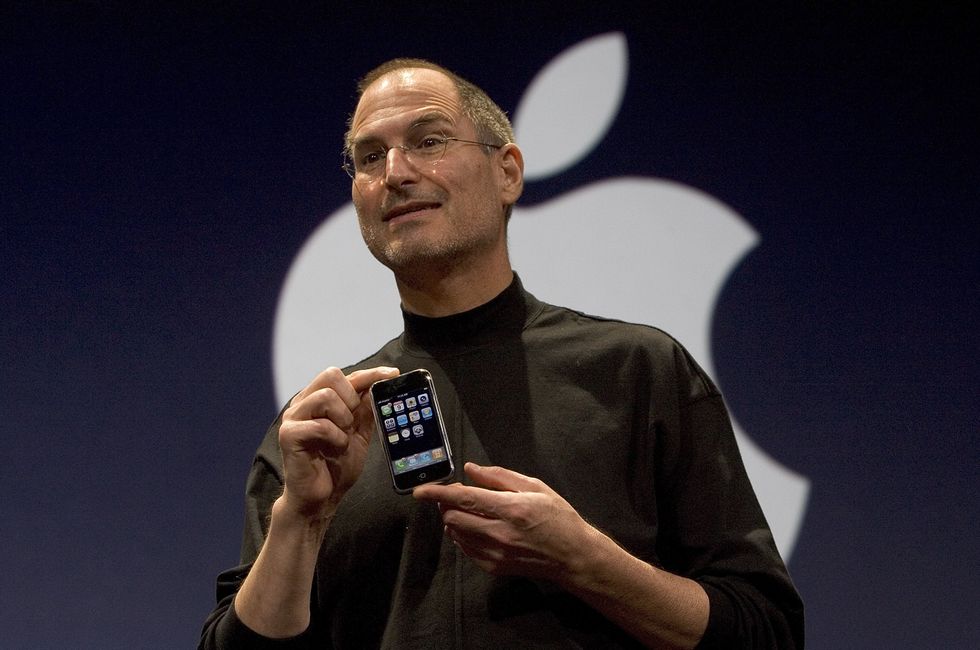iPhone owners could soon be able to download and install apps from third-party app stores not managed by Apple as part of a massive shift triggered by the EU's Digital Markets Act legislation on March 7, 2024
APPLE PRESS OFFICE
For the first time, iPhone owners will be able to download apps and games from third-party stores, change their default browser, and use contactless payments other than Apple Pay
- Apple confirms a slew of changes coming in iOS 17.4 to comply with EU law
- The update will be available before the Digital Markets Act kicks in March 7, 2024
- iPhone users will be able to download apps and games outside of the App Store
- Apple will still scan all iOS apps for malware and other threats
- But it warns EU law brings "unavoidable increased privacy and security threats"
- Microsoft has hinted at plans to launch an alternative games-only store for iPhone
- Fortnite will return to iPhone with introduction of Epic Games mobile store
- Changes only apply to 27 EU member states, with UK missing out for now
Don't Miss
Most Read
Trending on GB News
Apple has confirmed sweeping changes to how its App Store will work in Europe — reversing policies that have been in place since the launch of the iPhone back in 2007 — in response to incoming EU laws.
Starting in March, Apple will allow users in the European Union to download apps and make purchases from outside of its App Store.
iPhone owners have only ever been able to install apps and games from the App Store, which is preinstalled on all iOS devices. This allows Apple to vet all software before it's available to download on iPhones worldwide, helping it to maintain an iron grip on security, unapproved features, and taste.
However, critics of this approach argue the 30% cut that Apple makes on all digital purchases within the App Store constitutes a monopoly. To avoid paying the mandatory commission, Netflix no longer allows new customers to subscribe to its streaming service within the iPhone app, while Amazon doesn't sell Kindle books inside its shopping app on iOS. For a limited time, Spotify charged users more to subscribe within the iPhone app in a bid to offset the cut from Apple.
All these practices could soon become a thing of the past ...in Europe, at least.
Apple will be bringing its sweeping changes to 27 European Union member states with its next major update for iPhone — iOS 17.4 — ahead of the EU’s Digital Markets Act going into effect March 7, 2024.
Unfortunately, that means UK-based iPhone owners will be subject to the existing rules for now.

iPhone users have only ever been able to download, install and update their iOS apps from the Apple SApp Store since the introduction of the marketplace back in July 2008
GETTYIn a statement, Apple’s Phil Schiller made clear that the Californian company still believes that opening up the App Store could pose a risk to iPhone users. “The changes we’re announcing today comply with the Digital Markets Act’s requirements in the European Union, while helping to protect EU users from the unavoidable increased privacy and security threats this regulation brings,” he said. “Importantly, developers can choose to remain on the same business terms in place today if they prefer.”
The biggest changes coming with iOS 17.4
- iPhone owners will be able to download iOS apps from outside of the App Stores, including direct from websites or new app marketplaces run by competitors, like Microsoft
- Apple will let users set Google Chrome, Microsoft Edge, Firefox and other popular apps as the default web browser on their iPhone
- Developers can use an engine other than Apple's own WebKit to build web browsers for iPhone, which could lead to Chrome and Firefox releasing new versions with their own technology for rendering sites — potentially offering faster performance
- App creators will be able to access the NFC chip inside the iPhone for wireless payments for the first time, enabling tap-to-pay transactions that don’t rely on Apple Pay
Even under the new rules, Apple plans to keep a close eye on iOS app distribution. The company is introducing a new review process called “Notarization,” which will be handled by a mixture of automation and human reviewers. This will scan for malware and other threats to users.
Developers can only distribute a single version of their iOS app across different app stores, so you’re unlikely to see exclusive features for those who stray beyond the borders of the Apple App Store.
However, iPhone users will be able to set a third-party app marketplace as their default to download all apps – a monumental change for iOS, unlocking the flexibility that Android users have enjoyed for years.
The change will enable rival companies, including Google, Amazon, Epic, Microsoft, and others to launch separate digital storefronts to distribute apps and games on iPhone. Speaking to the Financial Times, Microsoft's gaming chief Phil Spencer previously confirmed plans to launch a separate store on iOS for mobile games when the Digital Markets Act legislation comes into effect.
Epic Games has already confirmed plans to restore its best-selling Fortnite mobile game to iPhone and iPad in Europe later this year — with the introduction of its own Epic mobile games store.
LATEST DEVELOPMENTS
Under the new rules, for the first time, developers will be able offer apps to iPhone owners that violate Apple’s strict App Store guidelines. This could open the floodgates for particularly violent video games, pornography, and more.
Developers can download the first iOS 17.4 beta now to begin testing the changes in preparation for the roll-out in early March 2024.








